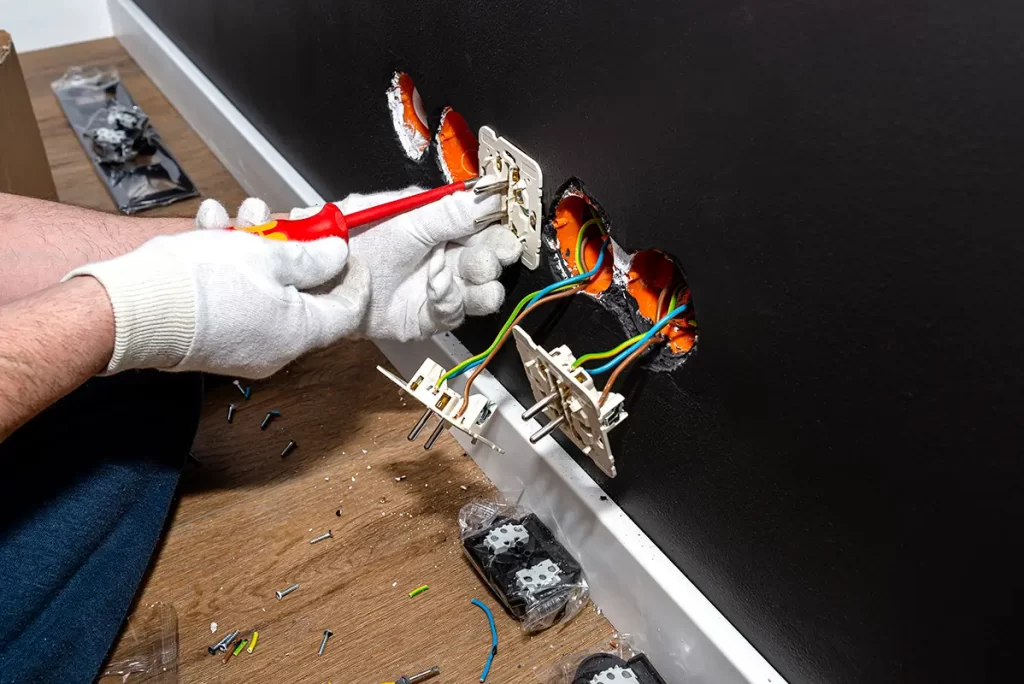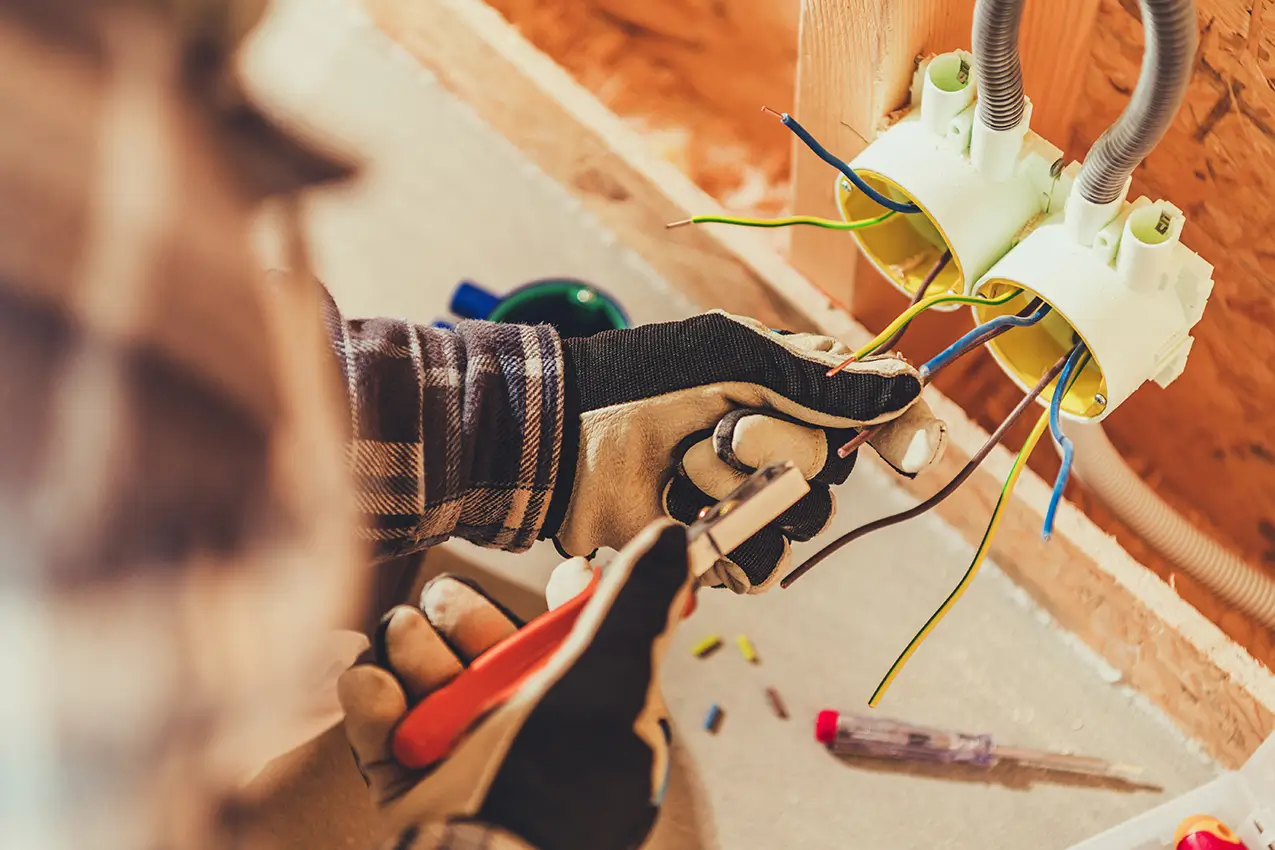Electrical rewiring is replacement of old wiring in properties to fulfil requirements of latest wiring standards. Existing electrical systems of houses are now heavily loaded beyond their capacity. Old wiring having limited electric current carrying capacity becomes inefficient when it comes to feed large appliances. Properties that have not been rewired for more than 25 years are also more prone to electrical hazards. Hence, rewiring a house becomes an essential need for a safer and efficient electrical system within premises. Some of the properties in the UK are even wired with aluminium wires which makes them fifty-five times more prone to fire hazards than properties having copper wiring.
This outdated electrical wiring does not comply with the latest electrical standards hence posing serious dangers to the occupants. If wiring inside your property is done by outdated rubber insulated electric wires, then you must understand need of house rewiring in order to comply with the latest British Standards BS7671, often referred as IET Wiring Regulations. Wiring Regulations (18th Addition) are the UK’s national standards that sets rules and regulations for domestic electrical wiring. These regulations also states that domestic electrical wiring must be in compliance with the Building Regulations – Approved Document Part P as well.
Age of your property and the time when it was rewired plays an important role in assessing the health of existing electrical system. It is also important to know that a house to be rewired after 25 years in order to conform to latest safety standards. Another reason of rewiring a house is its inadequacy in meeting electric demands of new loads. Furthermore, deterioration of wiring insulation and absence of earth wire are also some of the prominent reasons to rewire a house.


Rewiring a house is one of the substantial jobs for safety and compliance to the latest British Standards BS 7671. All habitable properties usually undergo some kind of changes over a period, leading to changes in electrical power demands. Some common factors that influence the consideration of rewiring are:
Adding or replacing electric circuits in an existing electrical system demands technical expertise. A clear understanding of the British Standard BS 7671, IET Wiring Regulations, 18th Edition and the Building Regulations 2010 Approved Document P is crucial in getting the electric circuit added or replaced in conformance with the latest safety standards.
KCS Electrics strongly believes in professionalism, quality and commitment. Our client’s satisfaction and loyalty make us dominate in home rewiring, circuits installation and replacement. KCS Electrics outstanding record, effective responsiveness, efficient scheduling, prompt attendance and swift delivery helps our clients in getting home rewiring and new circuits installation without any inconvenience. Alongside this, our home rewiring, circuit installation and replacement costs are market competitive which makes us standout in industry.